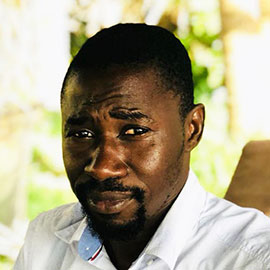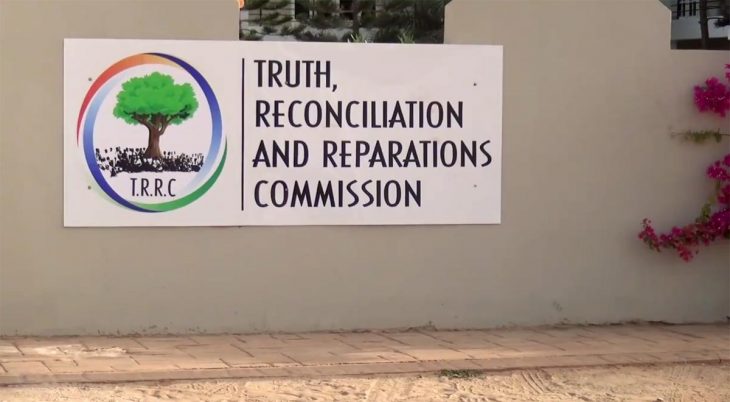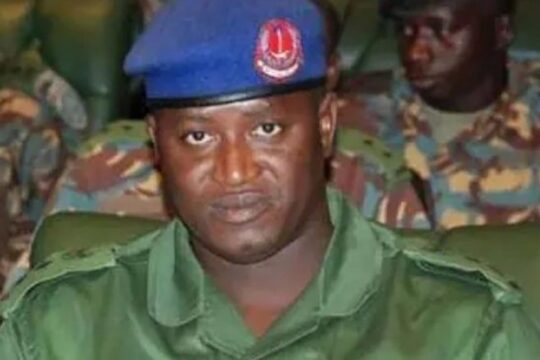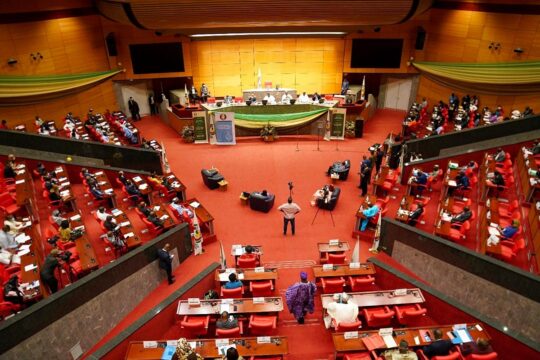Yankuba Touray held several positions under former president Yahya Jammeh, including Minister of Local Government and Land. On March 4, he was charged in the regional court of Kanifing Municipality, near Banjul, for tampering with a witness before the Truth, Reconciliation and Reparation Commission, which is investigating human rights violations committed under Jammeh. Touray denied any wrongdoing and he was granted a conditional bail, banning him from leaving the country.
He faces the same accusation with former speaker of Gambia’s National Assembly, Fatoumatta Jahumpa Ceesay. Ceesay, however, is yet to be arrested. As of Tuesday, she was out of the country although she promised to report to the police upon arrival, according to local media reports.
The testimony of Alagie Kanyi
Yankuba Touray was arrested on March 2 and detained at the Kairaba Police Station, following the testimony of Commission’s 24th witness, Alagie Kanyi. Kanyi, the first witness to have confessed to killings before the TRRC, claimed that both Touray and Ceesay have called him on telephone asking him not to appear before the Commission.
Ex-army Sergeant Kanyi testify nevertheless. During his testimony, he confessed to killings of several soldiers as well as the country’s former Finance minister Ousman Koro Ceesay. He also said that in the three execution events he was present at Touray was involved.
In July 1994, when Jammeh took power through a military coup, Yankuba Touray was a second lieutenant in the army. He reportedly played a leading role in the events that finally gave birth to the military regime.
On March 4, prosecutor Almameh Manga argued in court that Touray’s alleged actions were meant to “obstruct or interfere with the work of the Commission”. According to the TRRC’s Act, any person who “threatens or interferes with an informant or a witness, or willfully obstructs or otherwise interferes with work of the Commission in the discharge of its functions, commits an offence and is liable on conviction to a fine not exceeding one million dalasis [about 21,000 U.S. dollars] or to imprisonment not exceeding three years or both a fine and imprisonment.” Following the arrest of Touray, Gambia’s Government issued a statement reminding citizens that interfering with the work of the Commission is a crime.
A message to victims and witnesses
Malick Jallow, a Gambian human rights lawyer who has worked with United Nations Special Court for Sierra Leone and the International Criminal Court, told JusticeInfo.Net that the arrest and prosecution of Touray and Ceesay is a statement from the TRRC to deter anyone from interfering in its process. “It is in the best interest of the victims to see that such a person is punished by law to actually send a strong message of deterrence to individuals who are engaged or contemplating on doing the same thing. This is particularly important given that the TRRC is at its heydays,” said Jallow. “The witnesses are at the center of this process. So it is important that an enabling environment is created to ensure that relevant witnesses will have confidence to come forward and speak the truth.”
Jallow said while the TRRC Act clearly prohibits any form of interference, this case will be important in establishing “the requisite threshold in determining what amounts to interference with a witness.”
Yankuba Touray is meant to go back to court on March 11, the day the TRRC public hearings resume, after a one-week recess. His co-accused Ceesay is expected to have been charged by that time. While on break, the Commission is conducting its community outreach program and its “Never Again” campaign.






